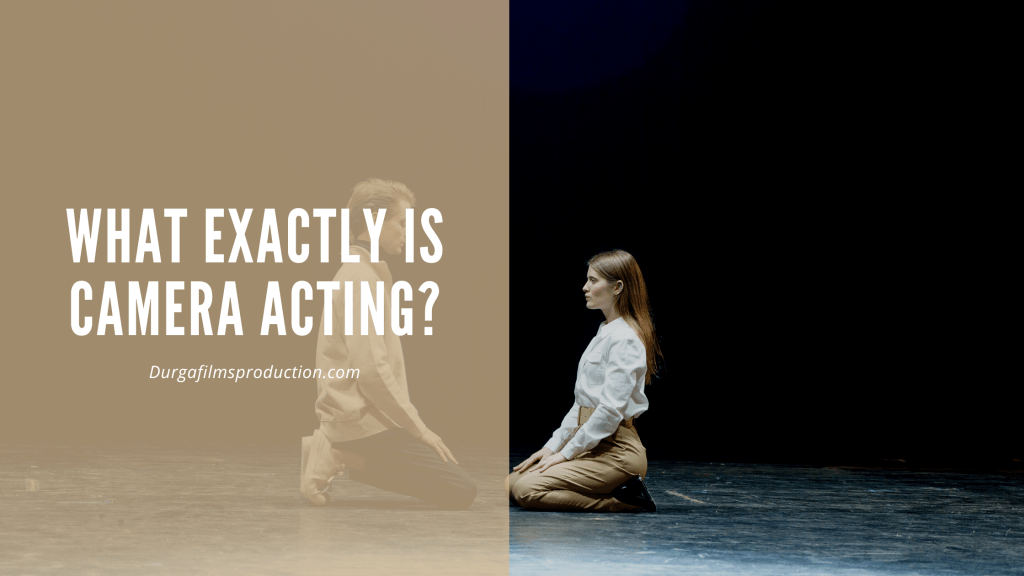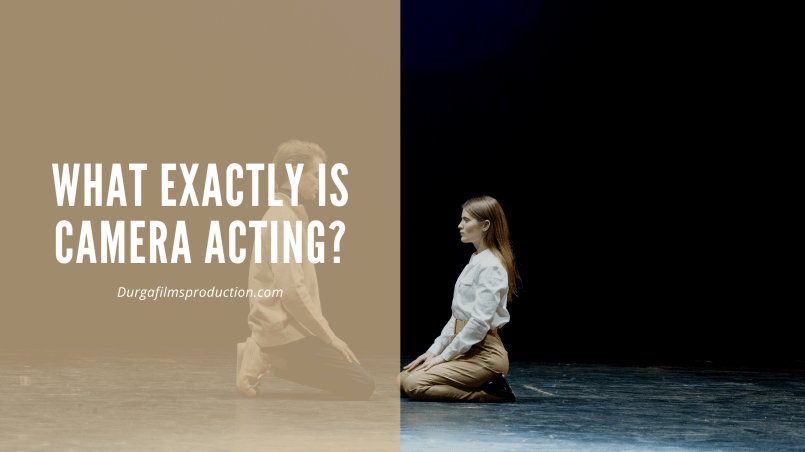Acting in front of a camera means performing for no one. Consider this: when a TV show is being filmed, there are essentially no viewers there, despite the fact that there may be 30 crew people circling. This is only to capture what occurs between the two people, which is why there is a camera present. Nowhere is required to receive your performance.
Advice on performing in front of the camera

We are going to discuss some tips for on-camera acting:
- Prepare for the performance gradually—Begin by slobbing out or simply relaxing and entering your body. I want you to stop thinking so much. To allow natural life energy and subconscious reactions to take place, it’s crucial to physically de-freeze and release your body. Every time I teach a relaxation method to a class, I have them take four deep breaths with their noses, hold for seven counts, and then exhale slowly through their mouths for eight counts. The quickest method for finding balance and relaxation is deep breathing. Your brain will shut down as a result of counting, allowing you to focus more on the present than on everything else.
- Understand your abilities in nonverbal communication: All stage actors receive training in two nonverbal communication channels: the body and the voice, which help to distinguish between performing for the stage and acting for the camera. The on-camera actor, however, must be aware of the three nonverbal communication channels of the body, voice, and face. This is what distinguishes the on-camera actor from the stage actor. Some people are hardwired to internalise emotions, which means that what they’re feeling isn’t coming out, whilst others are externalizers, who can see what emotions look like but can’t connect to the intensity unless they’re exposed to a lot of stimuli.
- Allow the camera to approach you. Acting in front of a camera means performing for no one. Consider this: when a TV show is being filmed, there are essentially no viewers there, despite the fact that there may be 30 crew people circling. To capture what occurs between the two people is why there is a camera present. Nowhere is it required to receive your performance. The camera follows you, unlike in stage work. David Dean Bottrell is a veteran actor and acting coach.
- To the point: on camera, boundless possibilities appear as universal, but human constraints appear as sharply defined characters. Prejudices restrict how people can see and react to the world, which defines them as people and, by extension, as characters. What keeps a story fascinating is seeing how a finite person or character interacts with the outside world.


